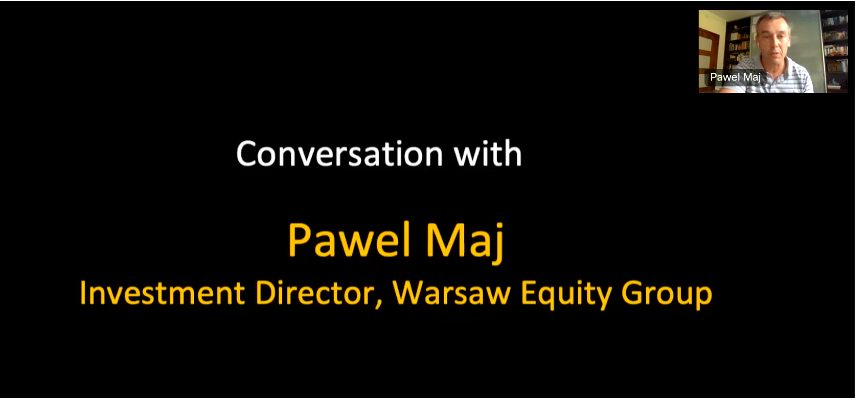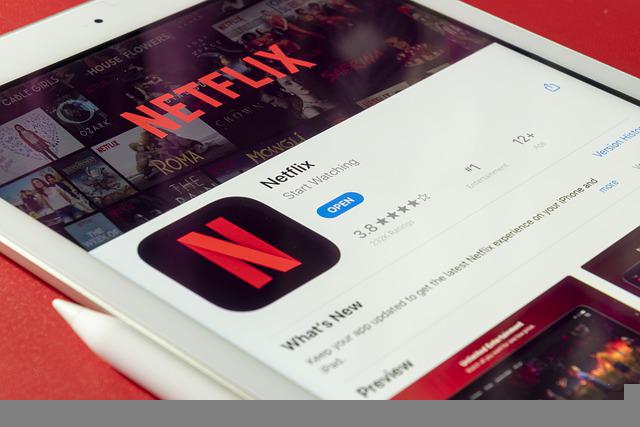Roundtable Recap: July 21 – Spotlight on Post-Seed and Pre-Series A Funding in Europe

During this week’s roundtable, we had as our guest Pawel Maj, Investment Director, Warsaw Equity Group. We discussed post-seed and pre-series A funding in Eastern and Central Europe in the context of his firm’s investment thesis.
Matomela Group
For our entrepreneur pitches, we first had Mthetho Phakathi, from Pretoria, South Africa, pitch Matomela Group, a manufacturing venture.
Interlpure
Next, Rigdha Banerjee from Jersey City, New Jersey, pitched Intelpure, a clothing rental marketplace concept.
You can listen to the recording of this roundtable here:
Featured Videos
Thought Leaders in Financial Technology: My Digital Money CEO Guy Gotslak (Part 2)
Sramana Mitra: To what extent did the consulting business help you in this new project?
Guy Gotslak: A lot. I was customer-focused. I wanted to get personalized services to our clients. We ended up getting acquired by a software company that does personalization where the idea is to help give personalized digital experiences. It can be on any channel. I just became passionate about being able to do that but still keep humans in the mix too.
Sramana Mitra: You stayed with the company that acquired you?
>>>Cloud Stocks: Expensify Tests Other Services for Growth

The global expense management software market is expected to grow at 12% CAGR to reach $6.6 billion by 2025 driven by the continuing centralization of enterprise expense-related data. Centralizing all-expense-related data along with utilizing expense management software provides organizations with the ability to review, monitor, and manage expense reports on the go. While the market remains dominated by bigger players like SAP Concur, Sodexo, and Intuit, Expensify (Nasdaq: EXFY) is a smaller player that went public last year.
>>>Video FAQs
Can 1M/1M Help Me Raise Money?
How Does 1M/1M Democratize Entrepreneurship Education?
How Does 1M/1M Democratize Management Consulting?
When Is The Right Time To Join 1M/1M?
Can 1M/1M Help Me With Business Development?
Can 1M/1M Help Me With Market Sizing?
Can 1M/1M Help Me Validate My Product?
Will I Have Private 1-on-1 Sessions In 1M/1M?
How Does 1M/1M Help Entrepreneurs Connect With Silicon Valley?
Mentoring or Consulting?
Why Does 1M/1M Charge $1000 a Year?
Why Does 1M/1M Partner With Local Organizations?
Why Don\’t Mentoring Networks Work?
Why Is It Important To Study With 1M/1M Now?
Dan Stewart Story
Vikrant Mathur Story
Student Developers Bootstrapping with a Paycheck, Then Growing to a Million Users: Ben Spring, CEO of TryHackMe (Part 2)
Sramana Mitra: When you finished university, what point were you at?
Ben Spring: I can’t remember now. It must have been 10,000 users.
Sramana Mitra: All free still?
Ben Spring: We introduced a pay-as-you-go model. You can pay per course. After talking to users, we found that it wasn’t the best model for us, so we moved over to a subscription model where you pay monthly and you get access to every single thing on TryHackMe.
>>>583rd Roundtable for Entrepreneurs Starting NOW: Live Tweeting by @1Mby1M
Today’s 583rd FREE online 1Mby1M Roundtable For Entrepreneurs is starting NOW, on Thursday, July 21, at 8 a.m. PDT/11 a.m. EDT/5 p.m. CEST/8:30 p.m. India IST. CLICK HERE to join. PASSWORD: startup All are welcome!
Thought Leaders in Financial Technology: My Digital Money CEO Guy Gotslak (Part 1)

Guy transitioned from being a hands-on developer to running a consulting company, and then eventually, to becoming a Crypto entrepreneur. In this interview, we discuss the nuances of his journey, as well as the trends in the Crypto world that are opening up opportunities.
Sramana Mitra: Let’s start by introducing our audience to yourself as well as to the company.
Guy Gotslak: I’m the President and Co-Founder of My Digital Money. I’m originally from Israel. I moved to the States when I was eight years old. I ended up studying computer science and engineering at UCLA. Then I went on to be a programmer for over five years.
>>>583rd Roundtable for Entrepreneurs Starting in 20 Minutes: Live Tweeting by @1Mby1M
Today’s 583rd FREE online 1Mby1M Roundtable for Entrepreneurs is starting in 20 minutes, on Thursday, July 21, at 8 a.m. PDT/11 a.m. EDT/5 p.m. CEST/8:30 p.m. India IST. CLICK HERE to join. PASSWORD: startup All are welcome!
Netflix Widens Offerings and Subscription Plans

Earlier this week Netflix (Nasdaq: NFLX) reported its second quarter performance that failed to impress the market. The company continues to lose subscribers, albeit at a lower pace, and is looking at alternate revenue sources to drive growth.
>>>